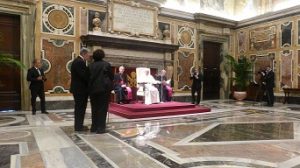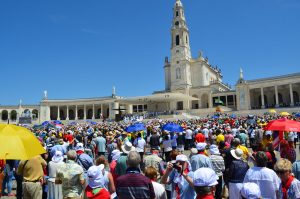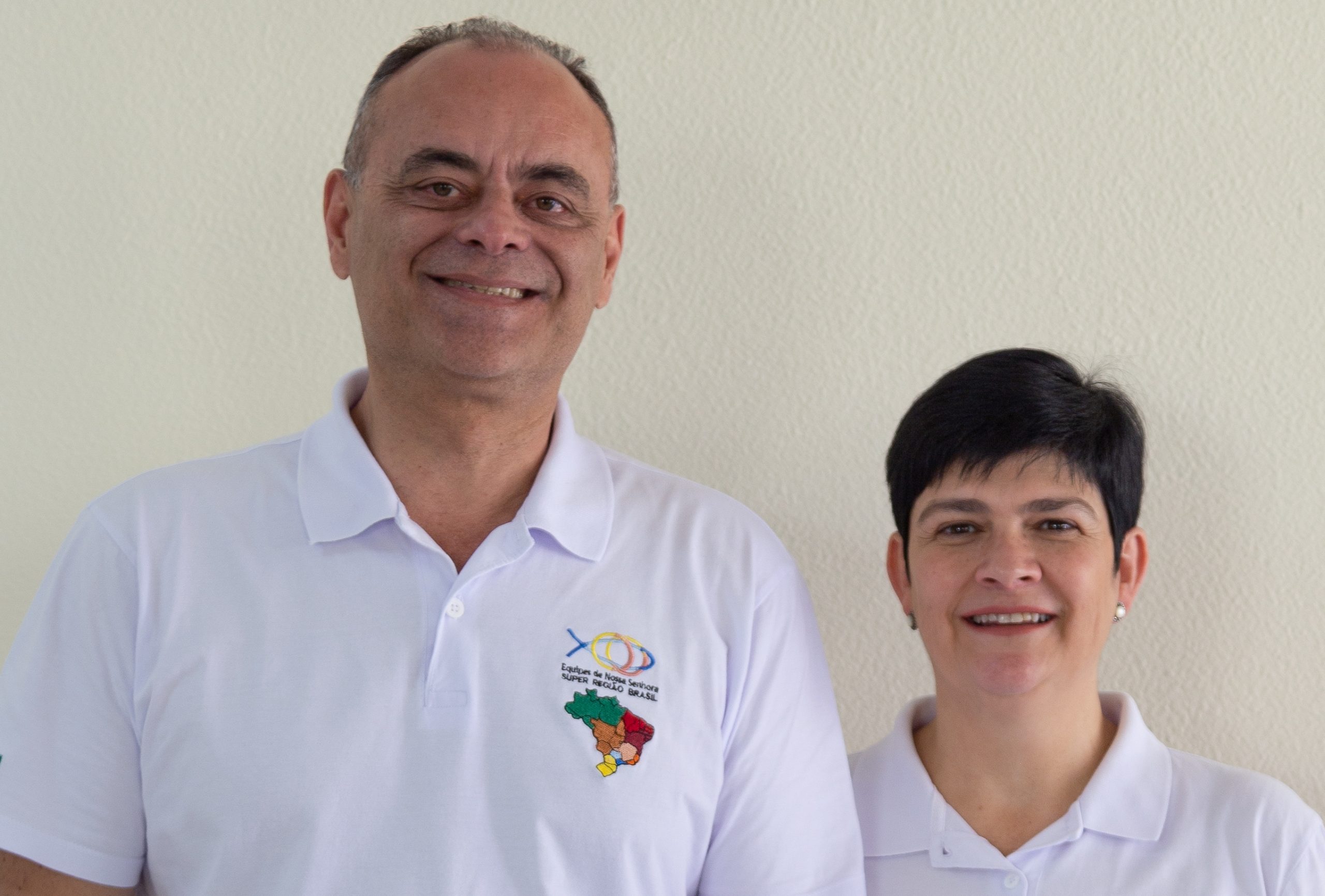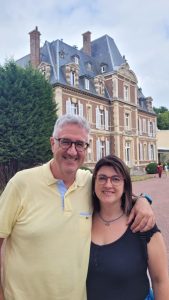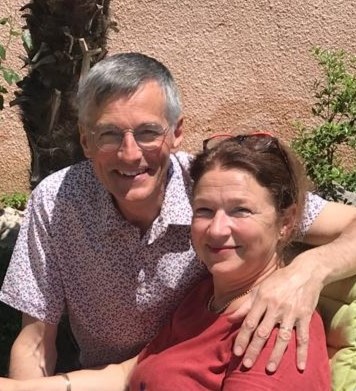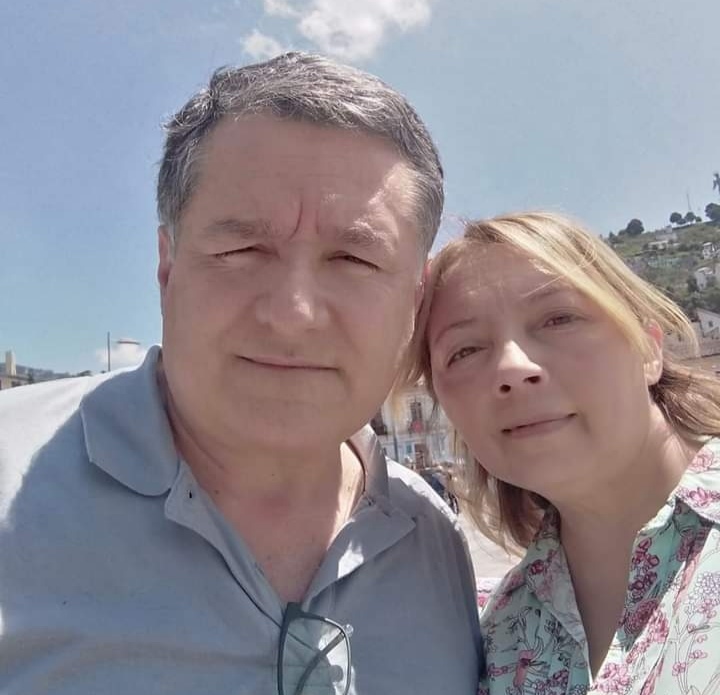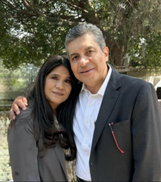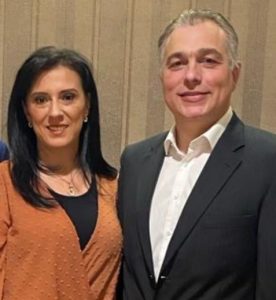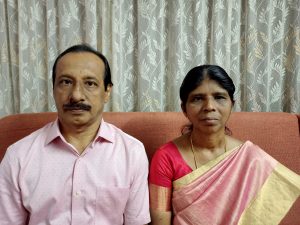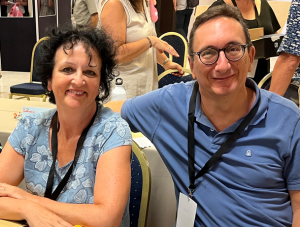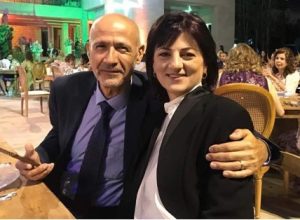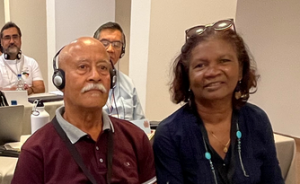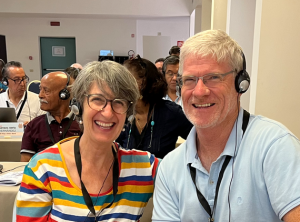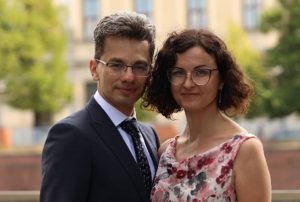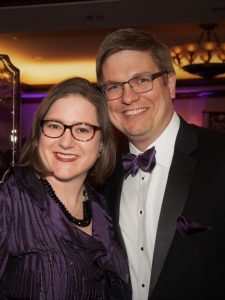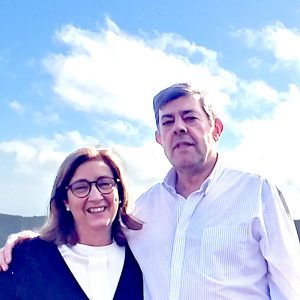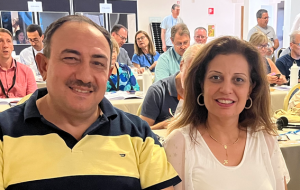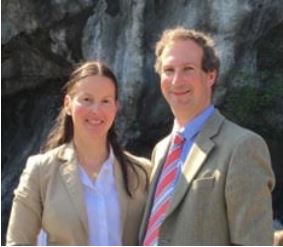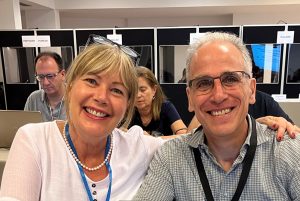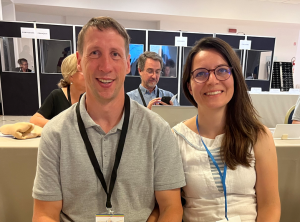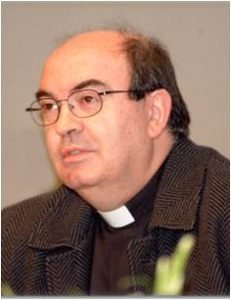
My very dear Team Members,
“This is a hard saying; who can understand it?” (Jn 6:60). Many disciples had this reaction to Jesus’ words after the multiplication of bread. In a clear allusion to the Eucharist, Jesus said that his body is true nourishment and that his blood is a true drink. According to the logic of St John’s Gospel, this speech of Jesus about the bread of life is more understandable if we remember that Jesus is the Word of God incarnate (Jn 1:14), the unique and definitive Word of God that God spoke to humanity. The disciples reacted in this manner because they did not succeed in understanding that the Word of God is the very person of Jesus, who spoke to his community of disciples. He himself, in the community of disciples, is the Word of God that man needs more than food that perishes: man does not live on bread alone, but on every word that comes from the mouth of God. The Jews knew that very well already; they bore the first commandment, “Listen, Israel” (Dt 6:4), before their eyes, like a light and as a tefillin on their arm. But when Jesus said that the Word that nourishes was no longer the Law, nor the Prophets, but He himself in person; that the place for listening was in the community of his disciples, such words were “hard” to hear, because they demanded a complete conversion: now, loving God more than everything meant and continues to mean following Jesus, who leads us to God. He in person is the visible face of God. Even if we can adore God in Spirit and in Truth everywhere, it is in the community of his disciples, the Church, that we find the place where He is present, even if he sleeps through the great storms of history and of each person’s personal life. All that sounded too strange to the ears of many disciples and it is why they moved away and no longer were with Him. It was then that Jesus asked the twelve who remained, “Do you also want to go away?” Simon Peter answered Him, “Lord, to whom shall go? You have the words of eternal life.” (Jn 6,67-68).
These words are also hard today, just as they were in those times. Jesus himself, at the hour of his passion said, “Abba, Father, all things are possible for You. Take this cup away from Me; nevertheless, not what I will, but what you will.” (Mk 14:36) Hard too are Jesus’ words “…so then they are no longer two, but one flesh.” (Mk 10:8), when they are taken over by St Paul with reference to marriage between the disciples of Christ, a text that is the foundation of Scripture for the affirmation of the indissolubility of sacramental marriage (cf. Eph 5: 31-32). According to the apostle and illuminated by the mystery of Christ and the Church, the wife is, through marriage, the husband’s body and the husband is the wife’s head. This means that the wife thinks in her relationship with the husband and the husband feels with the heart of the wife; the husband is the head of the wife; the wife is the heart of the husband, living in reciprocal submission, because reciprocal obedience, which is the essence of the relationship between Christians (cf Eph 5:21), is only possible between people who love each other. Loving means being able to give of oneself in the perfection of love, which is pardon or forgiveness. Loving and suffering are identical. Human love, even when transfigured by grace, is a crucified love. These words are truly hard, but they contain the gentleness of love.
In as far as is possible and moved by the action of God’s grace, let us take to heart St Peter’s words, ““Lord, to whom shall go? You have the words of eternal life.” Do not forget them in your married prayer and above all in your Sit-Down. Pray for me; I do likewise for you.
P. José Jacinto Ferreira de Farias, scj.
Conseiller Spirituel de l’ERI.
“Announce, give witness and communicate”, our couples and family vocation…
